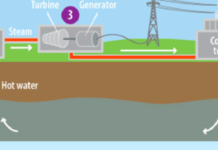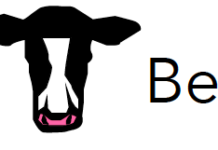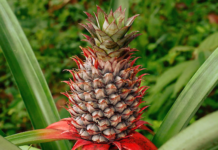Corn is a food that is essential to almost everybody, because it is found in important products such as medicine, cleaning supplies, and, of course, food. But lately corn prices have been skyrocketing, and not because the farmers had a bad season, but because the oil companies are taking over the corn industry for another use: to make ethanol fuel.

Lucy, a junior at St. Joseph’s Academy, has noticed corn prices rising in her daily life. Her family owns a small farm and their main crop is corn. They have to buy the seed from the major corn companies; however the cost of this seed has been increasing drastically in the past years.
According to a 2007 article in Technology Review, entitled Ethanol Demand Threatens Food Prices, the price of seed that year increased about 70% in less than 6 months. This means that the price of corn tortillas doubled, and the prices of many other corn-based foods increased. In 2007, the amount of corn being used for ethanol fuel was at about 20%; the next year the percentage increased to about 25. Since then, it has increased even more.
Matthew Loveless, a data integration specialist at the U.S. Department of Energy (DOE), explains that the crude oil needed in the U.S. is expected to reach over 6.7 million barrels per day by 2020. This would be too much to import every day, which is why scientists have been creating an environmentally-friendly fuel made by distilling natural plants into alcohol. This is called ethanol fuel. DOE’s Energy Information Administration (EIA) predicts that the importance of imported oil will decline as domestic production of ethanol rises. “EIA expects net petroleum imports to drop to 36% in 2035, from a high of 60% in 2005,”Loveless writes.
Ethanol fuel has become more popular because it is a renewable resource made from plants. The biofuel industries have been relying heavily on corn to produce ethanol fuel. According to the National Corn Growers Association, “Ethanol is a cleaner burning fuel with higher octane.” Ethanol fuel also contains oxygen and when added to gasoline helps the fuel combust more completely and decreases the amount of pollutants produced from the fumes. Although ethanol fuel has become very popular and is healthier for the environment, the use of corn to produce this fuel is creating other problems.
According to Nathan Mosier and Klein Lleleji, researchers with Purdue University’s Department of Agricultural and Biological Engineering, corn contains large amounts of glucose that is easily broken down into simple sugars and fed to yeast to make ethanol. Corn is one of the easiest plants to ferment and distill because of its high sugar content, but that does not mean that fermenting other plants to create an alternative ethanol fuel is impossible.
Currently, biodiesel, a common gasoline used to fuel many cars, is made from 80% petroleum oil, 10% ethanol fuel, and 10% other additives. Although 10% does not seem like much ethanol fuel, it requires a surprising amount of corn. An article from Economic Research Services states, the U.S. ethanol industry needed 2.6 billion bushels per year by 2010—1.2 billion bushels more than 2005. That the number is likely to increase , if corn is continued to be used to make ethanol fuel.
According to David Pimental, a leading Cornell University agricultural expert, one-fifth of the corn farmed each year is used to create fuel rather than food. If all vehicles and automobiles in the U.S. alone ran on ethanol fuel created from corn, 97% of the land in America would be needed to grow all of the corn. While ethanol fuel companies are promoting the use of corn to increase the amount of ethanol fuel used in cars, scientists believe this is not plausible.
Making ethanol fuel with corn is not only affecting how much land is needed to grow the corn, but also the corn sold for agricultural purposes. America is seeing widespread inflation of food items because the price of corn has risen so dramatically. Corn is used in a large variety of foods such as cereal, flour, candy, peanut butter, and others. It is also used in antibiotics, cleaning products, and aspirin.
Jan Recard of Bloomington IL has her own struggles with the rising prices of corn. She owns a horse that she boards at a local stable and cattle ranch. The owners of the ranch grow their own corn and feed for the cattle and other animals, but they still need to purchase some of the corn for their cattle. The price of corn is escalating and it is not just affecting the cows, but also farms and other farm animals. “My boarding fees have been raised several times in the past year due to the rising price in feed,” she said in an interview.
Ethanol fuel can be made using a variety of plants, not just corn. The use of leaves or grass to make ethanol fuel would be an alternative to using corn. Grass is cut and grown over and over again all around the world. All of those grass clippings could be used to make ethanol fuel.
According to David Biello, associate editor of environment and energy for the magazine Scientific American, farmers in Nebraska and the Dakotas have dedicated huge pieces of land to planting switch grass. Switch grass is the grass that grows on the outside of crop fields and it grows very tall. The switch grass is cut to make ethanol fuel and produces five times more energy than the energy required to grow it.
Lucy, the junior from St. Joseph’s Academy, states, “Knowing that there are other products out there that could be used to make ethanol fuel angers me because the oil companies could be using those products instead of affecting the whole economy by using corn.” Katie O'Dea
Related articles: Controversy over High Fructose Corn Syrup; Growing Green Oil

This work is licensed under a Creative Commons Attribution-NonCommercial-NoDerivs 3.0 Unported License














What a great article. It truly gave me insight to a problem impating almost everyone’s budget!
Well done
CORN IS MOSTLY FOR FOOD, WE DONT HAVE THAT MUCH LAND TO MAKE CORN AS A FUEL.
Wow this article is amazing. It’s so scientific and enlightening. I learned oh so much about corn. CORN.
I like that the author used a lot of sources, and sited other websites.:good
I think its a great idea to use corn as fuel because fuel is becoming scarce and there will always be land to grow food and how are we going to grow food with out fuel for the machines…..
Very good article good opened my eyes to new ideas. :ak
Great point! we have lots of corn, and we need more great hinking like this so we can keep inovating technology :smile
this article gave me ideas and opened my eyes to earths natural resources: good
thanks for the sources, it gave me a chance to see other info:smile
I know that 40 present of corn is used for 10 present of fuel but cant we just go half corn for fuel half for food?